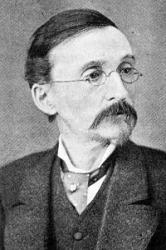Planning worship?
Check out our sister site, ZeteoSearch.org,
for 20+ additional resources related to your search.
- |
User Links
Search Results
Cydunwn oll o galon rwydd (Come let us unite from a ready heart)
Meter: 6.6.8.6 Appears in 1 hymnal Used With Tune: GLANCERI
Cydunwn oll o galon rwydd (Come let us unite from a ready heart)
Mae'r gwaed a redodd ar y groes (The chiefest theme of heavenly song)
Author: Robert Williams; Elfed Appears in 6 hymnals Used With Tune: GLANCERI
Mae'r gwaed a redodd ar y groes (The chiefest theme of heavenly song)
Mae'r gwaed a redodd ar y groes (The chiefest theme of heavenly song)
Author: Robert Williams; Elfed Hymnal: Cân a Mawl #78 (1918) Languages: English; Welsh Tune Title: GLANCERI
Mae'r gwaed a redodd ar y groes (The chiefest theme of heavenly song)
Duw, pan agorech Di Dy law
Hymnal: Hymnau a thonau at wasanaeth amrywiol gyfarfodydd y cysegr #194 (1910) Languages: Welsh Tune Title: GLANCERI
Duw, pan agorech Di Dy law
O, deffro, deffro, gwisg dy nerth (Awake, awake, arm of the Lord)
Author: J. H.; D. H.; An. Hymnal: Mawl a chân = praise and song #247 (1952) Languages: English; Welsh Tune Title: GLANCERI
O, deffro, deffro, gwisg dy nerth (Awake, awake, arm of the Lord)
Anonymous
Person Name: An. Author (stanza 5) of "O, deffro, deffro, gwisg dy nerth (Awake, awake, arm of the Lord)" in Mawl a chân = praise and song In some hymnals, the editors noted that a hymn's author is unknown to them, and so this artificial "person" entry is used to reflect that fact. Obviously, the hymns attributed to "Author Unknown" "Unknown" or "Anonymous" could have been written by many people over a span of many centuries.
Anonymous
Daniel Hughes
Person Name: D. H. Translator of "O, deffro, deffro, gwisg dy nerth (Awake, awake, arm of the Lord)" in Mawl a chân = praise and song
Daniel Hughes
D. Emlyn Evans

1843 - 1913 Composer of "GLANCERI" in Cân a Mawl Born: September 21, 1843, Penralltwen, near Castellnewydd Emlyn (Castle Emlyn), Carmarthenshire, Wales.
Died: January 19, 1913, Cemmaes, Montgomeryshire.
Buried: Llandyfriog (near Newcastle Emlyn), Wales.
Evans was a composer, adjudicator, conductor, editor, critic, music historian and entrepreneur. Frequently irascible, especially in his last years which he spent in severe and immobilizing pain, he was one of the foremost figures in Welsh musical life in the period leading up to World War I.
He was self taught, via the most popular of all Welsh music publications, John Mills’ Gramadeg Cerddoriaeth, and the two parts of Thomas Williams’ Ceinion Cerddoriaeth (Musical Gems, 1852) with its 200 hymn tunes and seventy anthems and choruses. Later, formal lessons by a music teacher, Mr. Hughes of Llechryd, a few miles from his home, gave him a firmer grounding in the old notation used until 1858. The same year, in Bridgend, he sang his first song in public, conducted his first choir and won his first prize for composition. In 1863 he moved to Cheltenham, where he worked as a shop assistant and received further lessons in piano and organ. He became a commercial traveler in 1871, and traveled in this capacity for the next 20 years the length and breadth of Wales, making contacts and observing the growth of music throughout Wales. It was probably during his overnight stays in hotels that most of his musical compositions were created at the end of his working day. Throughout this period, 66 of his pieces won prizes in competitions in Wales, England and America. Evans’s works include:
Y Caniedydd Cynulleidfaol, 1895 (editor)
--www.hymntime.com/tch
D. Emlyn Evans


 My Starred Hymns
My Starred Hymns

